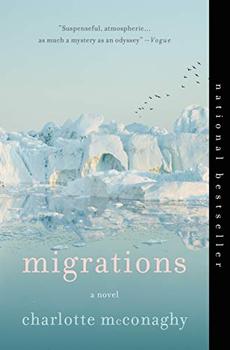The novel's epigraph is taken from a poem by Rumi: "Forget safety. / Live where you fear to live." How does that directive resonate throughout Franny's life? Do you think it's good advice?

 The novel's epigraph is taken from a ...
The novel's epigraph is taken from a ...
Created: 08/05/21
Replies: 8
Join Date: 10/15/10
Posts: 3442
The novel's epigraph is taken from a poem by Rumi: "Forget safety. / Live where you fear to live." How does that directive resonate throughout Franny's life? Do you think it's good advice?
Join Date: 02/26/21
Posts: 72
Join Date: 01/06/20
Posts: 2
Join Date: 10/10/13
Posts: 41
Join Date: 08/31/18
Posts: 32
I would construe this as good advice only if I planned to live alone, gain experience, gather insight, and strengthen myself for survival. I would not view it as good advice if I wished to establish a more permanent home and thrive. I view the latter as a haven in which one can grow in a healthy fashion, live with others, and potentially raise their young without encountering constant threats
.
Franny lives in various places. In each, she ultimately experiences emotional and/or physical pain. I believe that this is what drives her to wander, like she is searching for her haven. While she manages to survive and harden herself during these journeys, it takes a long time before she discovers her safe place.
Join Date: 08/29/11
Posts: 61
I've always been a fairly cautious person. And yet, I've lived and worked in places that were not exactly safe. I tried to look at everything with a positive eye, even though that didn't always make sense. Nevertheless, it did embolden me.
Years ago, after my second son was born, I started receiving strange phone calls. They disturbed me. I was living in an iffy neighborhood, and my husband would stay out whenever he could. I became very afraid, and I thought: we have to move. I persevered, returning to my job of teaching middle-school inner city children. But I kept my goal of moving in mind, and finally--although a loan to us was refused, we did leave (my in-laws paid for the home, and we were paying them back).
Nevertheless, our fearful times continued. Finally, my husband and I divorced, and once again I was alone with my sons a great deal of the time.
The message here, as it relates to Rumi, is that my sons and I did live in fear a great deal of the time. But we faced it. It was not easy, but we maintained our strength (even during alcoholic displays of my former husband).
We chose to keep strong (it was not easy for my younger son, who always felt compassionate towards his father). I knew I grew in strength, although I questioned my self-worth now and then.
I appreciate what Franny did--her situation was much worse than mine, but what she did was encouraging. Real-life or not, some matters need to be dealt with headlong.
Join Date: 03/12/20
Posts: 17
Rumi’s words perfectly match the philosophy of Franny’s life. As with most things, I think balance is the key to happiness. A safe life without any risks can become stagnant and boring. Taking too many uncalculated risks can be equally detrimental. I think you need to take some risks for personal growth, without taking it to the extreme.
Join Date: 11/14/11
Posts: 170
There is risk to truly experiencing life. In my youth I feared taking risks; however, I needed to risk discomfort and failure to find my strength and to spread my wings. Similar to the Chinese Phoenix rising from the ashes. Then again, consider the quote that “ fools go where angels fear to tread”, that feels more akin to Frannie’s choices.
Join Date: 06/29/15
Posts: 146
Reply
Please login to post a response.